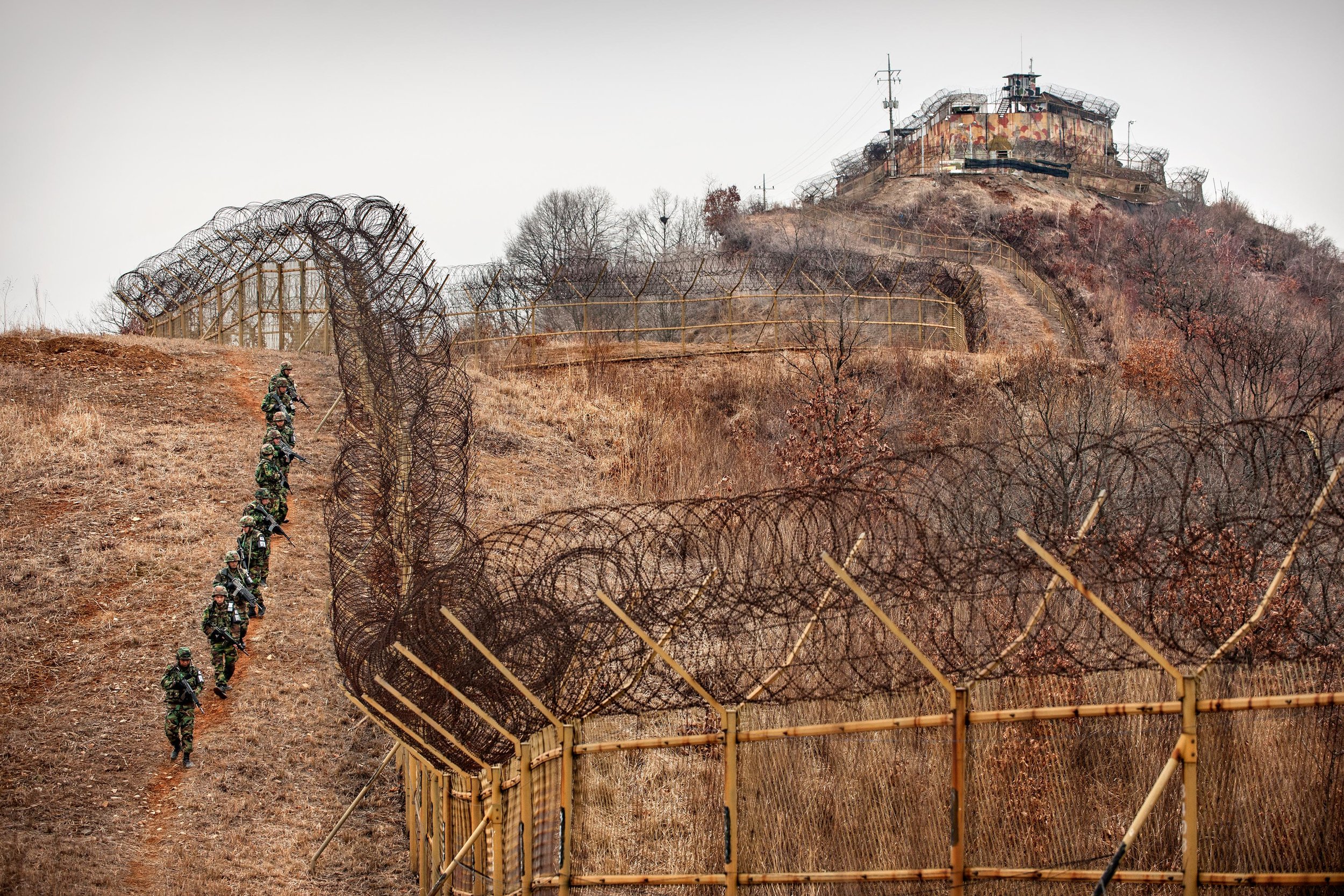Book Review: DMZ: Demilitarized Zone of Korea by Park Jongwoo
by Miabelle Salzano
Feel the tension between the sublimity of the natural world and the ugliness of human militarization presented in Park Jongwoo’s book DMZ: Demilitarization Zone of Korea. As the first photographic documentation ever of the Demilitarization Zone, Jongwoo acted as a “collector of evidence” when procuring his photos rather than a “builder of narrative,” as Dr. Alasdair Foster stated in the introduction. As a result, we are left to draw our own conclusions from the photobook.
This book houses many landscape photographs and an eerie peacefulness completely unique to the Demilitarization Zone: vast expanses of mountains covered in lush forestry appearing almost untouched, only to be sliced up with threefold barbed wire fences and speckled with military bases; birds flying over watchtowers instead of trees in the midst of low hanging mist. The known military presence and activity hidden beneath the beauty of the environment creates an experience unlike any camping or trekking trip available in any other part of the world. Instead of an appreciative understanding or a privileged struggle with nature, the Demilitarization Zone presents an existence purely based on war.
Originally representative of an armistice between North and South Korea, the DMZ has come to symbolize national division of people and culture. Instead of peace, the photos manage to accentuate the most frightening aspects of nature bringing about feelings of paranoia and hopeless seclusion. After sixty years in existence, the DMZ has become a part of life in North and South Korea. The photos show how the animals living there have adapted to the human interference just as they have in any other part of the world, and how they have even begun to take advantage of the manmade seclusion, being located just 39 kilometers from Seoul, South Korea.
When looking at these photos, you can feel the tension and paranoia that must live in the Demilitarization Zone. Park Jongwoo’s expertly executed objectivity in documenting the DMZ has presented a man versus nature situation as opposed to man versus man. The scale of the mountains and forests compared to the humans trying to navigate them is staggering. It seems as if the largest threat to the military personnel living in the DMZ aren’t the landmines and enemy forces, but the instability of the natural world posing the ever-present, undeniable threat of destruction. Thus, both sides are rendered equals in the face of their environment based on their common trait of being a part of the human race.
Jongwoo is able to revert the DMZ to its original purpose in DMZ: Demilitarized Zone of Korea. As a documentation on land that physically divides North and South Korea, the book ends up uniting the two countries through the examination of their commonalities as opposed to focusing on their conflicts.
Order a copy of DMZ: Demilitarized Zone of Korea here!












